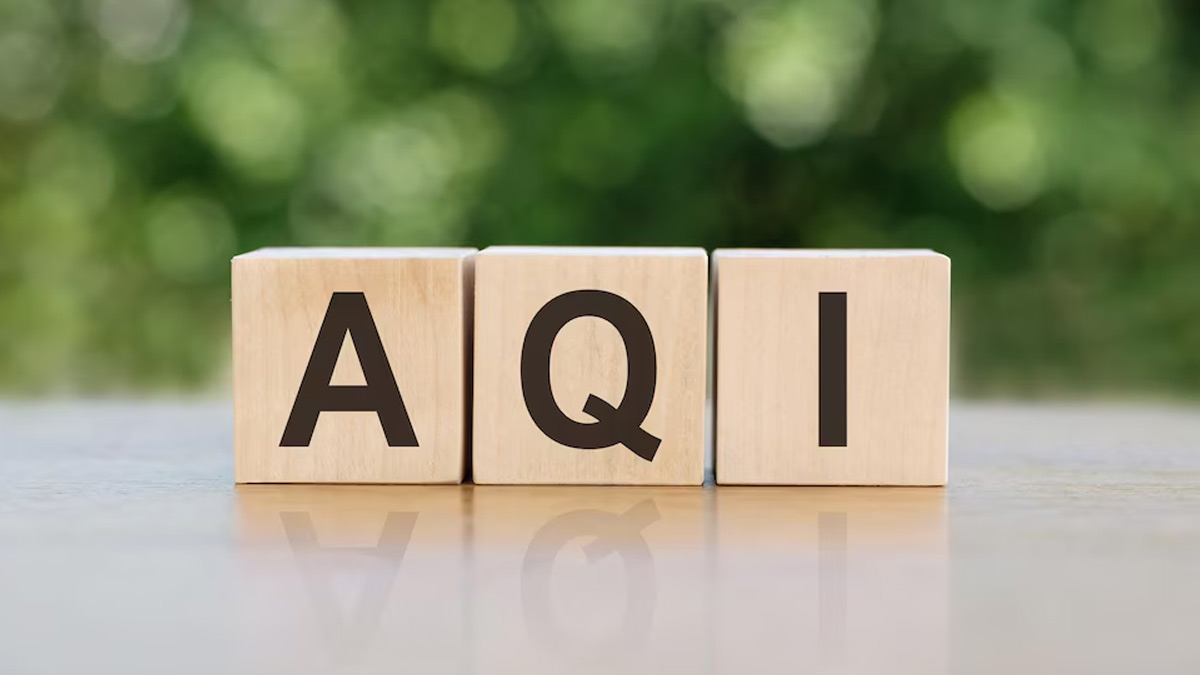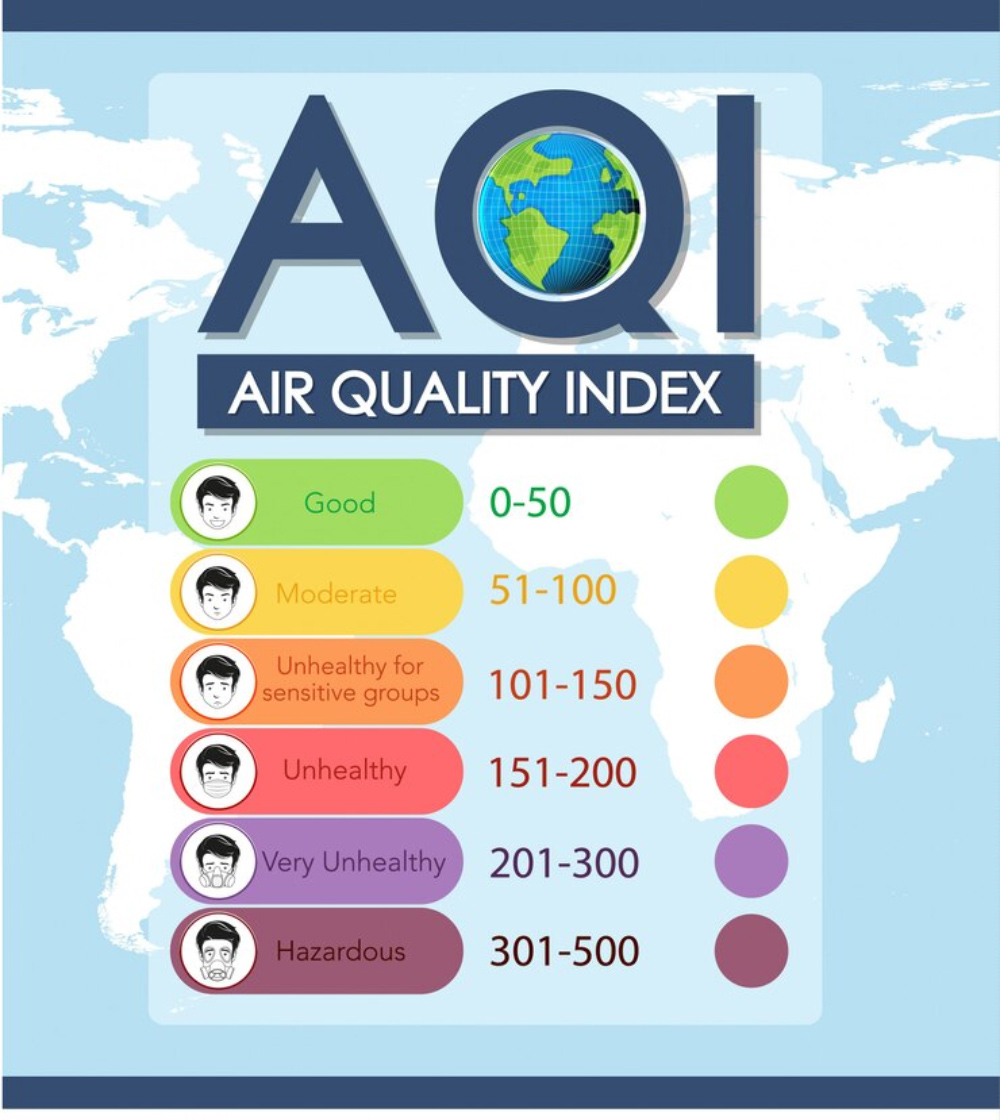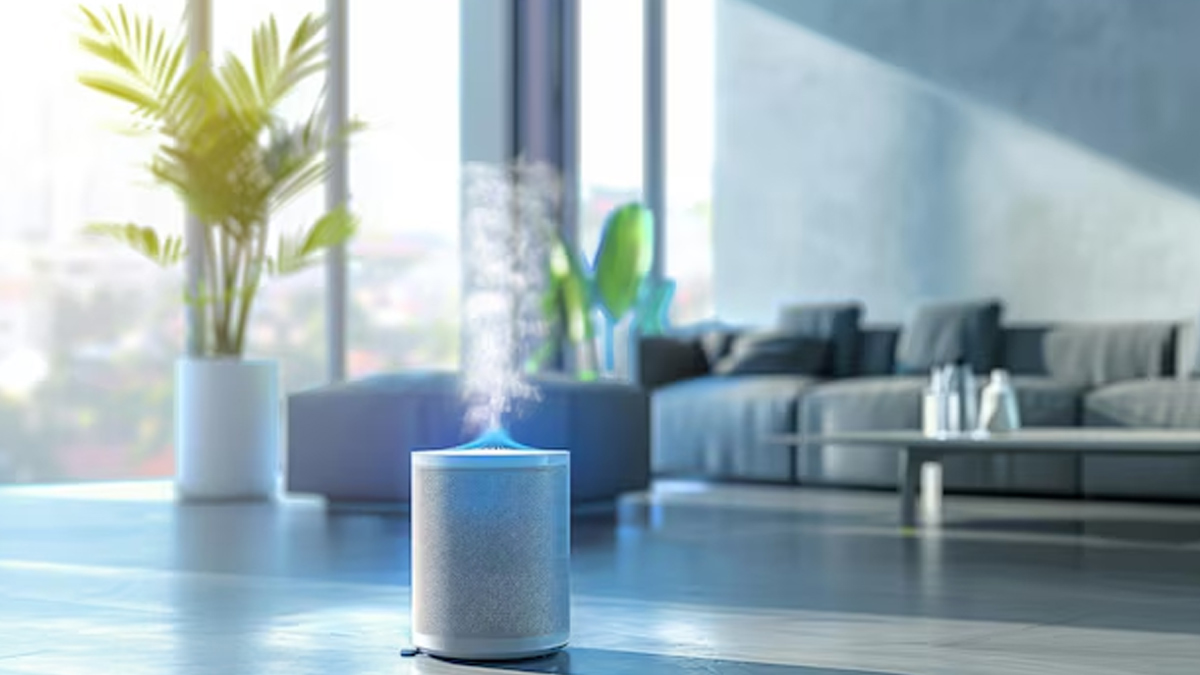
When you step outside and take a deep breath, have you ever wondered if the air you're breathing is truly safe? With pollution levels rising in many cities, the air quality around us is becoming more important than ever. The Air Quality Index (AQI) was developed to make sense of how clean or polluted the air is, helping us make informed choices about our health. But what do those numbers on the AQI scale mean, and how can they impact your day-to-day life? Let’s dive into what the AQI tells us and how it affects our well-being. We spoke to our expert Dr Manjunath PH, Consultant - Interventional Pulmonologist, Gleneagles BGS Hospital, Kengeri, Bengaluru, who explained AQI levels and their meaning.
Table of Content:-
What Is AQI?

According to the System of Air Quality and Weather Forecasting and Research (SAFAR), the AQI is designed to effectively communicate air quality conditions in a simple, easy-to-understand format. It converts complex data from various pollutants into a single index value, using clear categories and colour coding to convey information.
"The AQI is a numerical scale that measures the concentration of major air pollutants, including particulate matter (PM2.5 and PM10), ozone, carbon monoxide, sulphur dioxide, and nitrogen dioxide. These pollutants are monitored daily, and the AQI provides a single number representing the overall air quality for a given area. The index typically ranges from 0 to 500, with higher numbers indicating worse air quality," explained Dr Manjunath.
Also Read: Detox Your Lungs: Benefits Of Mullein Tea To Fight Air Pollution
AQI Levels and Their Meaning
According to SAFAR, the AQI is divided into six categories: Good, Satisfactory, Moderately Polluted, Poor, Very Poor, and Severe. These categories are determined by the concentration levels of air pollutants in the atmosphere and their potential health effects, referred to as health breakpoints.

Good (0–50)
- Air Quality: Clean air with little to no risk to health.
- Impact: Ideal for outdoor activities, including vulnerable groups like children, the elderly, and people with respiratory conditions.
Moderate (51–100)
- Air Quality: Acceptable, though some pollutants may pose a risk to people unusually sensitive to air pollution.
- Impact: People with respiratory conditions should be aware of slight aggravations as they may begin to experience mild symptoms like coughing or throat irritation. For most people, though, outdoor activities are still considered safe.
Unhealthy for Sensitive Groups (101–150)
- Air Quality: When the AQI reaches this level, sensitive individuals, including children, older adults, and those with respiratory or heart conditions, may experience adverse health effects.
- Impact: They should limit prolonged outdoor activities, especially physical exertion. The general population, however, is less likely to be affected at this stage.
Unhealthy (151–200)
- Air Quality: At this level, everyone may experience symptoms, such as coughing, breathing difficulty, or eye irritation. Sensitive groups are at greater risk and should avoid prolonged outdoor activities.
- Impact: Reducing outdoor exposure is recommended, and people with respiratory conditions should take extra precautions, such as using air purifiers indoors.
Very Unhealthy (201–300)
- Air Quality: Air quality in this range can trigger health alerts, as the risk of significant health effects is high for the general public.
- Impact: Outdoor activities should be avoided, and those with lung or heart disease must take serious protective measures.
Hazardous (301–500)
- Air Quality: When the AQI reaches this extreme level, the air is considered highly dangerous for all individuals, regardless of their health status.
- Impact: Stay indoors, keep windows closed, and use air purifiers. Those with pre-existing conditions are at high risk for serious respiratory issues, and medical intervention may be necessary.
Also Read: Burning Throat Due To Air Pollution? Follow These Remedies To Soothe Your Irritation
Who Is Most at Risk?

- Children whose lungs are still developing.
- The elderly with weaker immune systems.
- Individuals with respiratory or cardiovascular diseases may experience worsened symptoms.
- Outdoor workers and athletes, due to prolonged exposure.
Tips To Stay Safe on High AQI Days

- Monitor AQI Reports: Pay attention to daily AQI forecasts provided by weather apps, government websites, or news outlets. This will help you decide whether it's safe to engage in outdoor activities.
- Stay Indoors: On days when the AQI is high, it's best to stay indoors, especially if you are part of a sensitive group.
- Use Air Purifiers: Consider using air purifiers at home, especially if you live in areas prone to pollution or experience frequent high AQI days.
- Wear Masks: On days with extremely poor air quality, wearing N95 masks can help filter particulate matter when going outside is unavoidable.
Bottomline
Dr Manjunath concluded, “Understanding the AQI and taking precautions can significantly protect your respiratory health. Always consult your pulmonologist if you notice worsening symptoms or have concerns about air quality and its effects on your condition.”
[Disclaimer: This article contains information provided by an expert and is for informational purposes only. Hence, we advise you to consult your own professional if you are dealing with any health issues to avoid complications.]
Also watch this video
How we keep this article up to date:
We work with experts and keep a close eye on the latest in health and wellness. Whenever there is a new research or helpful information, we update our articles with accurate and useful advice.
Current Version